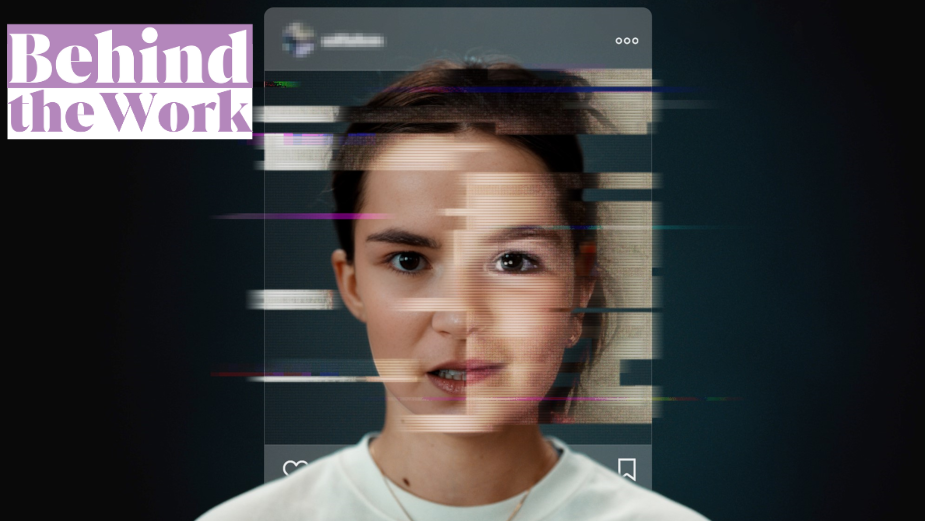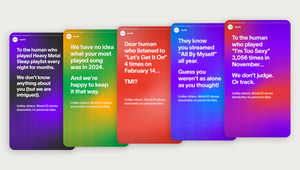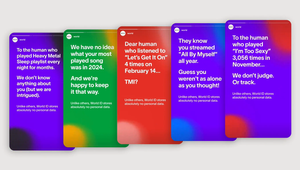
Why Deutsche Telekom Used AI and Deepfake to Steal an Identity

There’s no doubt that artificial intelligence (AI) is here to stay. With so many commercial and personal uses for the technology to be implemented, it’s no surprise that it’s already being used to automate processes, come up with creative solutions and now even has the ability to plan your upcoming holiday itinerary. But there’s also an undoubtedly darker side to things.
When it comes to image sharing, we all love to capture special moments, beautiful views and post images of the people in our lives. This is the case for no one so much as parents, who love to cherish pictures of their little ones by posting them online for people to see. But who’s actually seeing these images? With parents admitting that they do have strangers in their follower lists, who are able to access these images from public – and occasionally private – accounts, identity theft becomes an all too pressing risk.
Statistics from a Nominet study in 2016 state that parents share up to 300 pictures of their children each year, meaning that almost 1,500 have been shared by the time they reach their fifth birthday. With this information accessible to people online, the chance of each image being altered or used to misuse data, it could lead to more sinister implications of identity theft, hacking and in the worst case, explicit image use.
With this in mind, Deutsche Telekom and adam&eveBERLIN wanted to highlight the issue of ‘sharenting’ - when parents share photos, videos, and details of their children's lives online - through the 'Ella Without Consent' campaign, and show the implications of this via a campaign that has shocked and forced people into having an online conversation about the issue.
Sharing how the campaign was created, as well as some of the statistics informing decisions behind the scenes, LBB’s Nisna Mahtani speaks to the adam&eveBERLIN's chief strategy officer Philipp Schwartz.
LBB> What starts out as a seemingly harmless photo sharing moment, turns into a dark reality. When did the idea for the #ShareWithCare campaign first come about?
Philipp> It was a creative team that brought up the issue of ‘sharenting’. All parents on the agency and client side could immediately relate to the problem, but we all hadn’t heard the term sharenting before. This already indicated that the problems associated with it had not yet been widely discussed in public.
Once we started the research process, we discovered lots of people sharing their experiences - which prompted us to bring these very real dangers to wider audiences. The power behind the idea was that the message didn’t come from us. But from a child.
LBB> Why was Deutsche Telekom keen to make a statement about the impact of sharing images of young children and the implications that AI can have on it?
Philipp> With the rise of AI, it has never been easier to misuse personal data. The accessibility of AI to a broader audience brings significant data protection challenges. As Germany’s leading telco brand, Deutsche Telekom enables people to share their lives with each other. However, images of children are mostly shared without their consent. And this is why we decided to advocate for the protection of their virtual privacy.
LBB> An average five-year-old child has already had around 1,500 pictures uploaded without their consent. Can you share a little more about this staggering statistic and why you wanted to support changing it?
Philipp> We came across a shocking statistic from a British study conducted by Nominet, a UK domain provider. The study surveyed 2,000 parents of children aged 0 to 13, revealing that on average, parents share nearly 300 photos of their kids online every year – without obtaining their consent. This alarming figure means that by the time a child reaches the age of five, approximately 1,500 pictures have been uploaded.
Nominet's study summary highlights a significant lack of awareness among parents concerning privacy settings and safeguarding their children's data from strangers. The key solution to address this issue is education.

LBB> What are some of the other statistics about AI and identity theft that you believe people should be aware of?
Philipp> Another crucial statistic that highlights the impact of sharenting on identity theft is reported in The New Yorker. According to experts, by 2030, two-thirds of identity theft cases will be linked to sharenting. This alarming trend puts children at risk of involuntary exposure to various threats, including data profiling by brokers, hacking, facial recognition, paedophilia, and other privacy and security breaches.
LBB> Talk to us about the starting point of this spot. How did you find the parents to be involved and how did you go about capturing an authentic reaction from them?
Philipp> The story of Ella is something that could happen to millions of children worldwide in this generation whose parents document their childhood on social media. While we are addressing a very real threat, we cast actors to play the roles of Ella and her parents. The film uses the setting of a social experiment that is realistic because AI technology is already there. We decided to go for actors because the brand goal is to raise awareness for the big societal issue of ‘sharenting’ rather than blaming individual people.
LBB> On the AI side of things, can you tell us a little bit about the image and voice manipulation process - how long it took and what the reality is of how easily someone else could replicate it?
Philipp> Here's the deal: it can totally be replicated, and it's getting easier by the day. You just need the right software and a bit of knowledge. We had one person handling the AI side of things throughout the whole project – pretty telling, right? After a few weeks of tweaking settings, we hit the bullseye, and the final product in the film speaks for itself.

LBB> What was the process of creating the script for the campaign and how did you ensure it was hard-hitting enough to capture people’s attention?
Philipp> The script kept evolving and going through multiple versions – we kept tweaking things until the very end to make sure it had the right punch. But the script is just half the story. While shooting and during post production, we encouraged everyone involved to throw in their ideas and never really think of any part as ‘done’ until we nailed the whole thing down.
LBB> We saw the parents’ reaction, but how did everyone else react on the day and how did it impact the team?
Philipp> Everyone on the team was aware of what was happening, but surprisingly, we still witnessed some very emotional reactions. The real impact hit us when we finally released the film and saw how the world seemed to be eagerly waiting for something like it – a film they could effortlessly share with their friends and families to educate them on the important topic of sharenting.
LBB> How have people reacted to the campaign online, what are some of the things you’ve seen change since the release of this spot?
Philipp> When ‘A Message from Ella’ went viral, it attracted millions of views and caught the attention of global news outlets like ABC News, ELLE Italy, Le Parisien, Hürriyet, and the Daily Mail. More importantly, it sparked a positive change in parental behaviour worldwide. The film turned people into advocates, spreading in parents’ WhatsApp groups and educating friends and family about sharenting. Some even made their profiles private or deleted children's content from social media. Influencers like @mom.uncharted further spread the message, inspiring others to urge famous family creators to respect children's right to privacy.

LBB> Deutsche Telekom committed to the cause with the Teachtoday initiative. Can you share a little bit about that?
Philipp> With the Teachtoday initiative, Deutsche Telekom is committed to promoting safe and competent media use and supports children and young people, parents and grandparents, and educational professionals with practical and everyday tips and materials from the Teachtoday Toolbox.
LBB> Other than individuals being cautious about what they share on social media, what are some of the policies that you believe should be in place to regulate AI?
Philipp> Deutsche Telekom has been working with AI for many years and has implemented internal guidelines on its use. We see clear opportunities for the application of AI based on these. As a member of the ‘Germany safe on the Net’ initiative, we refer to the recommendations of the digital association Bitkom on the responsible use of AI and automated decisions.
LBB> What’s next for this campaign? What should we expect to see in the future?
Philipp> Be surprised!















